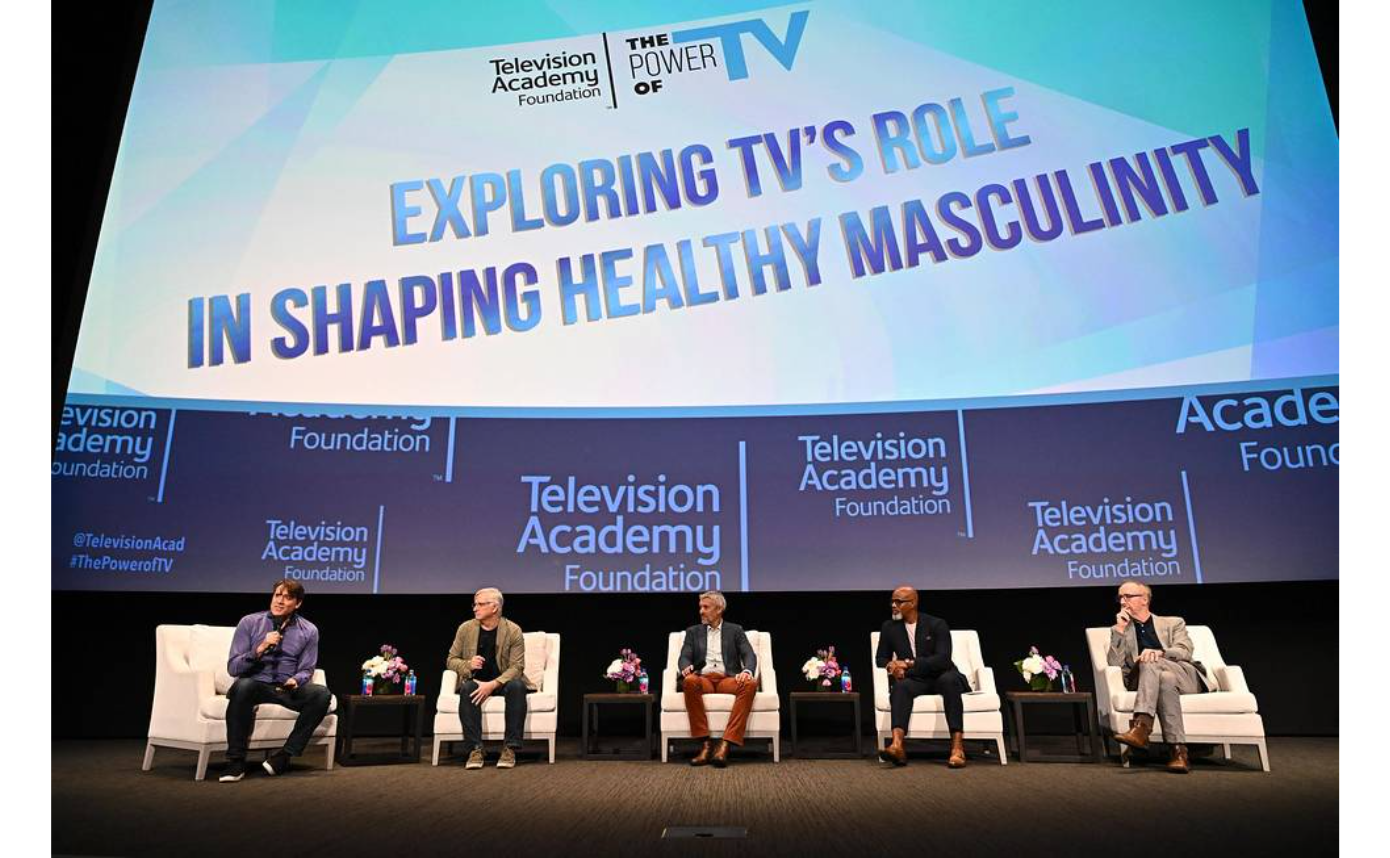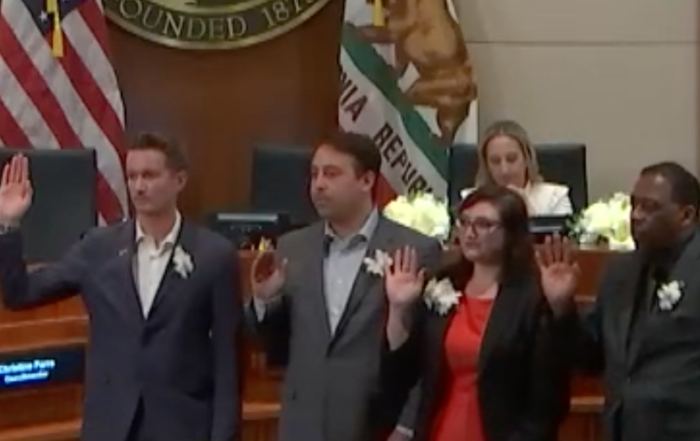On Thursday, October 26, the Television Academy Foundation hosted a panel discussing television’s role in portraying healthy masculinity on screen. Moderated by Tarah Malhotra-Feinberg, Executive Producer of the “Man Enough” podcast, the panel included Glen Mazzara, Gary Barker, Ted Bunch, and Matt Walsh, each bringing their own unique qualifications to the table.
“Television can be a really beautiful thing. It’s a mirror and a window into our kind of reality,” said Malhotra-Feinberg. He explained men in particular are struggling with how they fit into this world, often feeling isolated and disconnected, turning to digital media and online communities that devolve into toxic algorithmic echo chambers reinforcing the most harmful ideas they are feeling and acting upon.
Malhotra-Feinberg turned it over to Bunch who discussed the framing of healthy masculinity and gender equality. Bunch, Chief Development Officer at A Call to Men, an organization educating men and boys internationally on respectful manhood, referenced the concept of a “man box.” As an organization, they do their best to frame their discussions as invitations and not indictments.
He talked about how its collective socialization underlines harmful stereotypes about men and women, but the work they are doing looks to unpack these thoughts and rebuild men’s perspectives. He noted, “These rigid notions of manhood, this patriarchy is not working for men either.”
Barker, President and CEO of Equimundo: Center for Masculinities and Social Justice spoke next. Barker discussed the need to give boys space to exercise their care muscles. Focusing on research Equimundo recently conducted, Barker noted men often feel recent advancements in women’s rights are working against them.
Mazzara, TV showrunner and Chair of the Writer’s Guild Inclusion and Equity Group continued by discussing the last few decades’ evolution of masculine representation. “I do think things are changing… I don’t think you can have this conversation about the history of TV without mentioning Alan Alda and his work in ‘M*A*S*H.’” He noted Alda’s character was a caregiver as opposed to the traditional role of men on TV as the protector, going on to say men in the protector role often pay the price by having to mask their emotions. His line of thinking was influenced by the ideologies of Richard Slotkin, who talked about the American Myth and the Myth of the West. He mentioned shows that are currently portraying masculine vulnerability well, including Emmy nominees “The Bear,” “Abbott Elementary” and “Ted Lasso”. He noted Star Trek as a franchise has done a good job of evolving its representations of masculinity.
Walsh, an actor, writer, and producer of shows like “Veep” and “The Connors,” a self-described unqualified expert, talked about “Little House on the Prairie,” and its sense of community and ideals of taking in strays. Walsh also brought up “Somebody Somewhere,” a show where the main male character is a gay man stuck in a podunk town who is unconditionally loving to his mess of a best friend.
Malhotra-Feinberg mentioned the Geena Davis Institute’s outlook on healthy modeling of masculinity, “If he can see it, can he be it?” Barker highlighted “This Is Us” as a drama providing healthy male role models while mentioning modern gaming as a less healthy outlet featuring a lot of unnecessary first-person shooting as well as antagonistic language from the streamers on the side.
Mazzara spoke to the shift in the last seven years of diversifying writer’s rooms and having inclusive discussions as the norm instead of the exception. He talked about how sexual assault was used as a plot device in shows like “Game of Thrones” to activate male characters but wasn’t showing the effects on female characters. He acknowledged the “Bury Your Gays” trope, an often unconsciously included remnant of the Hays Code, an old order that forbade explicit depictions of homosexuality in film for decades. He noted today’s television development has to be done with a modern lens or risk looking like they’re not paying attention to the way the zeitgeist is moving.
Malhotra-Feinberg mentioned his podcast doesn’t use the phrase “toxic masculinity” as it is alienating and “unuseful.” He noted the panel represented a variety of perspectives, but was relatively homogeneous and could be diversified further.
Walsh said, “The people who have power, the decision makers… those positions have to be occupied by younger, more diverse people.” Mazzara continued by saying people in power have to advocate for those who aren’t currently in those positions by mentoring minority voices. He talked about how white guys now have to compete with talented people that they previously didn’t have to compete against. Bunch mentioned the privilege men experience regarding a sense of entitlement to job opportunities as well as the stance of blaming women for men’s actions in a post #MeToo world.
The final question posed by Malhotra-Feinberg was, “What does it mean for you to be ‘man enough’?”
Bunch doesn’t want to feel like he needs to be man enough, he just wants to feel like he is enough. Barker said it’s when he stops using “I” and steps into “We.” Mazzara said it’s okay to say “I don’t know” and to ask for help. Walsh said it’s okay to be vulnerable and to allow yourself to feel all of it.
Audience questions included looking at the culture of sport in framing healthy masculinity as well as how biology plays a role in masculinity. Bunch mentioned a Scholastic survey that asked boys how to define consent. Initially, 19 percent of men couldn’t accurately define consent, but after the program’s lesson on consent, the number jumped to an understanding of 75 percent.
After the panel, audience members spoke about why they attended and what they gained from the panel. Jodi Delaney, Executive Director of the Television Academy Foundation, explained they frequently host these panels covering a diversity of perspectives including trans visibility, disability, and foster youth representation. Damian Terriquez said being able to take what was discussed into the work they and their partner do, on and off screen, will improve based on the different perspectives they heard from in the panel.
Photo provided by the hosts
Stay informed. Sign up for The Westside Voice Newsletter
By clicking submit, you agree to share your email address with Westside Voice. We do not sell or share your information with anyone.








